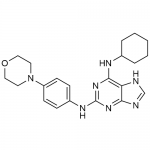Stem Cells
What are stem cells?
Stem cells are unspecialized cells. They can divide either into additional stem cells or into specialized cells. Self-renewal is when stem cells replicate and the daughter cells continue to be unspecialized. Cell differentiation is the process of stem cell division where the daughter cells become specialized.
Types of Stem Cells
Embryonic stem cells are undifferentiated cells found in early stage embryos. They can differentiate into all cell types and can easily grow in cell culture.
Adult stem cells (or somatic stem cells) are undifferentiated cells found in tissues or organs. Their purpose is to repair the tissue in which they reside. They are more difficult to harvest and grow in cell culture.
Induced pluripopent stem cells (iPCs) are adult stem cells that can be genetically reprogrammed to become like embryonic stem cells. By definition, pluripotent cells can proliferate without differentiating.
Where do stem cells come from?
Adult stem cells are found in tissues throughout the body. Embryonic stem cells were first obtained from mouse embryos and then allowed to proliferate in vitro. In vitro fertilization (IVF) requires the creation of large numbers of embryos, several of which are introduced into the uterus and the remainder of which are cryopreserved or discarded. Spare or discarded embryos, even if they are non-viable for pregnancy purposes, can be sources of human embryonic stem cell lines.
Stem Cell Therapy
Hematopoietic stem cells are responsible for producing blood cells. They are found in bone marrow, umbilical cord blood, and amniotic fluid, and are used in transplants for patients with leukemia and other life-threatening illnesses. Skin stem cells can grow into skin grafts for burn patients and limbal stem cells can be used to repair damage to the cornea.
Stem Cell Research
Stem cell research is diverse and has numerous potential applications. This includes studying fetal development and abnormal cell division that results in diseases. Stem cells have the potential to regenerate damaged tissues and organs as well as treat chronic diseases. For instance, researchers seek to use mysenchymal stem cells (MSCs) to repair cartilage, bone, and blood vessels. Stem cells can also be used to test drug toxicity.
Stem Cell Controversy
There are certain groups that seek to prevent human embryonic stem cell (hESC) research because stem cells are harvested from embryos which, if viable and inserted into the uterus, could potentially become human beings.
Stem cell research requires a great diversity of life science products. We are dedicated to developing cutting edge research products to aid in the study of stem cells, including polyclonal antibodies, antibody conjugates, small molecule inhibitors, and small molecule antagonists.
View all Stem Cells Products
